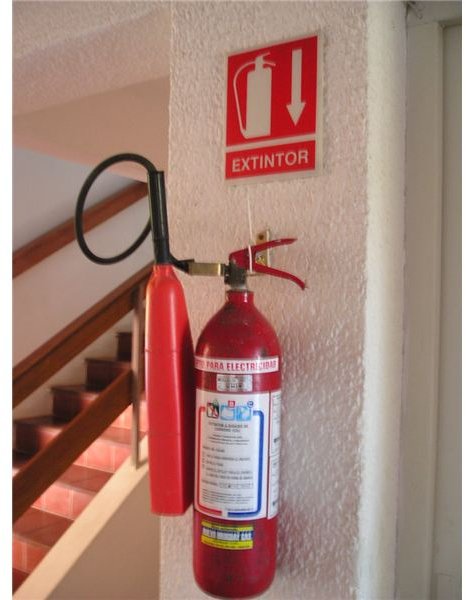Are Old Fire Extinguishers Recyclable? Learn the Facts
As recycling and creating a greener environment becomes more and more important, new questions arise in the average household about what can and cannot be recycled. Most of us have become adept at looking at the bottom of plastic containers to see what numbers are there and translating that into whether or not the product is recyclable. However, there are still many items in our household that we don’t know how to dispose of in a green manner. The fire extinguisher is one of those. Every household should have at least one accessible at all times. But, what do you do when you need to dispose of yours and get a new one? Finding answers to the question, “are old fire extinguishers recyclable?” is a matter of knowing a bit about your extinguisher and doing some simple research.
Reasons for Disposal
When your extinguisher has been discharged, it is time to dispose of it or see if it can be recharged. Also, if your extinguisher’s pressure gauge shows that it is undercharged, you may need to invest in a new unit. However, if the pressure gauge reads that the unit is overcharged, it may still be usable. Check the owner’s manual for instructions and recommendations. If none are given, call a local fire station to ask for advice.
Common Types of Extinguishers
The two most common types of fire extinguishers are those that use a chemical powder to put out a fire and those that use carbon dioxide. Chemical extinguishers tend to use either of the chemicals sodium bicarbonate or monoammonium phosphate.
Contact Your Local Fire Department
Before using a green option to dispose of the extinguisher, see if it can be recharged. Call your local fire department and ask if this is an option. Many departments recharge fire extinguishers or let you exchange an older or used extinguisher for a new one. There is often a fee involved, so ask about that when you call for information. Carbon dioxide extinguishers are manufactured with the intent that they can be refilled after use. Look through your local yellow pages for fire extinguisher recharging companies.
Discharging Your Extinguisher
Fire extinguishers are made of metal, which can easily be recycled. If you empty your extinguisher, you can recycle the canister with other scrap metal. Read the directions on your extinguisher to understand how to discharge the contents. Do so outside but do not discharge onto your lawn. For extinguishers that produce a chemical discharge, it is recommended that you discharge around plants that would tolerate an acidic fertilizer, such as an evergreen bush. Once the cylinder is empty, remove the top of the extinguisher. Removing the head shows that the fire extinguisher is indeed empty. You can then place the cylinder with other steel that is being recycled. If you have a carbon dioxide extinguisher you want to recycle, discharge it and then drill holes in the cylinder before taking the metal to be recycled.
Use the exercise of discharging the fire extinguisher as a family teaching tool. Show your children how to use the fire extinguisher and discharge it. That way, they will be ready, and less likely to panic, if they ever have to use it in an emergency. If you are feeling adventurous, and have an appropriate place to do so, build a small fire and use the extinguisher to put it out. To be safe, wear goggles and a mask to cover your mouth and nose while discharging the extinguisher’s contents.
What to Do with a Full or Extremely Old Fire Extinguisher
Never throw a charged or extremely old extinguisher into the trash or a recycling bin. An extinguisher that has not been emptied is under pressure and is considered dangerous because it could react with other materials. Older fire extinguishers have the added dangerous of possibly carrying the known carcinogen carbon tetrachloride. At this point, you are dealing with hazardous waste. Call your local fire department or search an Internet site such as Earth911.com to find out where the nearest hazardous waste facility is in your area and take your extinguisher there. Also, some communities sponsor household hazardous waste events to encourage people to dispose of hazardous waste properly.
The Most Important Step
No matter how you dispose of your fire extinguisher make sure you immediately replace it. This is an appliance no home should be without, even for a short period of time. In addition, make sure everyone in your home knows how to use the unit. Take the time to review the instructions with all family members and place the extinguisher where it is easily accessible.
References
Learn more answers to the question, “are old fire extinguishers recyclable?” by visiting the following reference websites:
